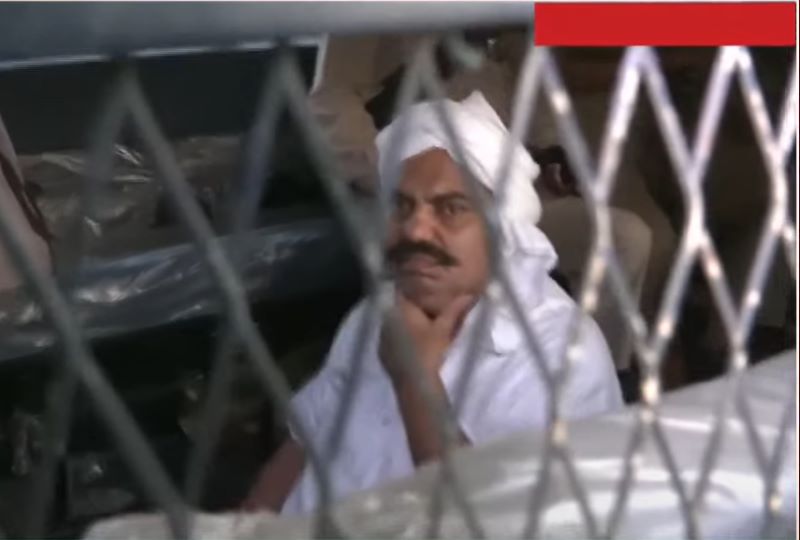How Atiq Ahmad and five other gangster politician's vote helped save UPA govt's collapse in 2008: Report

Lucknow: Six criminal-politicians, including Atiq Ahmad who was shot dead on Saturday, were quietly released in 2008 on furlough from various jails within a span of just 48 hours, according to a book on "Baahubalis." The book claims that their release was tied to the UPA government's need for their votes to save the civil nuclear deal with the US, which was facing opposition at the time. The politicians' votes were believed to be crucial for the government's survival.
During the Manmohan Singh government's tenure, the Opposition had moved a no-confidence motion which had put the UPA government and India's civil nuclear deal with the US in jeopardy.
According to a report in the media, to save the embattled government, six criminal-politicians were quietly released on furlough from different jails in just 48 hours, according to a book on "Baahubalis." These legislators collectively faced over 100 criminal cases, and Atiq Ahmad, then a Lok Sabha MP representing Phulpur constituency in Allahabad (now Prayagraj), was one of them.
According to the book "Baahubalis of Indian Politics: From Bullet to Ballot" authored by Rajesh Singh and published by Rupa Publications, Atiq Ahmad was one of the criminal-politicians who played a crucial role in saving the UPA government from collapse when the Opposition brought a no-confidence motion against it.
The book mentions that Atiq Ahmad, along with five other legislators who collectively had over 100 criminal cases against them, had been furloughed from different jails in just 48 hours in 2008, and their votes were crucial to save the government and the civil nuclear deal with the US.
The Left parties had withdrawn their outside support to the government in mid-2008 due to its decision to proceed with the nuclear deal.
"The UPA had 228 members in the Lok Sabha and was short of 44 seats for a simple majority to overcome the crisis of confidence. Prime Minister Singh, however, expressed confidence that he would survive. It soon became evident as to where that confidence came from," Singh writes.
According to the book "Baahubalis of Indian Politics: From Bullet to Ballot" by Rajesh Singh, the Samajwadi Party, Rashtriya Lok Dal (RLD) led by Ajit Singh, and Janata Dal (Secular) led by Deve Gowda, extended their support to the UPA government during the time of crisis. However, there were other "Baahubali netas" who played a role in saving the government, said the report.
"Forty-eight hours before the vote and with little fanfare, the government furloughed six of the nation's most prominent suspected lawbreakers -- collectively facing over 100 cases of kidnapping, murder, extortion, arson and more -- so that they could fulfil their constitutional duties as lawmakers," the report further quotes the book.
"One among them was Ateeq Ahmed, a Samajwadi Party lawmaker from Uttar Pradesh, with a conspicuous handlebar moustache and a penchant for safari suits. He dutifully cast his precious vote, no doubt in favour of the beleaguered UPA. The don had, by then, established himself in both politics and crime," according to the book.
Atiq Ahmad had a long innings as a politician who had a successful electoral career in Uttar Pradesh. He won five consecutive assembly elections from 1989 to 2002. In 2004, he was elected to the Lok Sabha as a member of the Samajwadi Party. However, he was expelled from the party in 2009 due to his criminal background.
Atiq Ahmad enjoyed multiple identities, using power and clout to extend his interests in various businesses. He was not just a politician, but also a contractor, builder, property dealer, and agriculturist. He also had a criminal record and faced charges of kidnapping, extortion, and murder, among other serious offenses.




